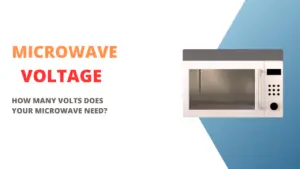Electric garage doors have become a common feature in many households, offering convenience and security.
However, it is crucial to understand the potential risks associated with electrical systems and the impact of overvoltage on these garage doors.
The increased voltage can cause harm to the motor and drive mechanism, resulting in malfunctioning or non-operational doors.
This article aims to provide an overview of overvoltage and its potential damage to electric garage doors, along with preventive measures to ensure their longevity and safe operation.
Understanding Overvoltage
Overvoltage refers to a sudden increase in electrical voltage beyond the normal operating range. It can be caused by various factors such as lightning strikes, power grid fluctuations, or faulty electrical equipment.
When excessive voltage flows through the electrical system of a garage door, it can pose significant risks and lead to damaging consequences.
Electric Garage Door Systems
Electric garage door systems consist of several components, including the motor, drive mechanism, control panels, and safety features.
These components work in harmony to facilitate smooth door operation. However, they are vulnerable to damage if subjected to overvoltage.
Effects of Overvoltage on Electric Garage Doors
Overvoltage can have several detrimental effects on electric garage doors. Firstly, it can cause damage to the motor and drive mechanism, leading to a malfunctioning or non-operational door.
Excessive voltage can burn out motor components, resulting in costly repairs or even complete motor replacement.
Secondly, overvoltage can adversely affect the electronic control panels of garage doors. These panels control the door’s movements and various features, such as automatic opening and closing.
When exposed to overvoltage, the delicate electronic circuitry within the control panels can be damaged, rendering the door inoperable.
Additionally, overvoltage can disrupt the proper functioning of safety features integrated into garage doors.
These safety features include sensors that detect obstacles in the door’s path and reverse its movement to prevent accidents.
When exposed to overvoltage, these safety features may malfunction, compromising the overall safety of the garage door system.
Read also my article: Overvoltage and Electric Toasters: What You Need to Know.
Signs of Overvoltage Damage
Recognizing the signs of overvoltage damage is essential for prompt action. Some common indicators include unusual noises or vibrations during door operation, failure to respond to control commands or erratic behavior such as sudden stops or reversals.
If you observe any of these signs, it is crucial to address the potential overvoltage issue promptly to prevent further damage.
Protecting Electric Garage Doors from Overvoltage
To safeguard electric garage doors from overvoltage, several preventive measures can be taken. One effective solution is to install surge protection devices (SPDs).
These devices act as barriers, diverting excessive voltage away from the garage door system, thus shielding it from potential damage.
Proper grounding techniques are also vital to mitigate the effects of overvoltage. Ensuring that the electrical system is appropriately grounded provides a safe pathway for excess voltage to dissipate, reducing the risk of damage to garage door components.
Regular maintenance and inspections are crucial for identifying potential issues and preventing overvoltage damage.
Using a surge protector can effectively protect the garage door from overvoltage damage. A surge protector is a device designed to divert excessive voltage away from sensitive electrical equipment, including the components of an electric garage door system.
Engaging the services of a professional electrician to inspect the garage door system periodically can help detect any underlying electrical problems and ensure optimal functioning.
Troubleshooting Overvoltage Damage
If overvoltage damage has occurred, it is important to troubleshoot the issue promptly. Identifying the source of overvoltage, such as a faulty electrical outlet or wiring, is crucial to prevent further damage.
Once the source is identified, appropriate repair or replacement options can be pursued to restore the functionality of the garage door system.
Preventive Measures and Best Practices
Taking preventive measures and adhering to best practices can significantly reduce the risk of overvoltage damage to electric garage doors.
It is advisable to consult a professional electrician for a comprehensive assessment of the electrical system and recommendations for protection against overvoltage.
During electrical storms, it is prudent to disconnect the power supply to the garage door system to minimize the risk of overvoltage damage caused by lightning strikes or power surges.
Furthermore, conducting regular checks of the garage door system, including inspecting electrical connections and verifying the integrity of surge protection devices, can help identify and address potential issues before they escalate.
Conclusion
Understanding the potential damage overvoltage can cause to electric garage doors is vital for ensuring their safe operation and longevity.
By implementing protective measures such as surge protection devices, proper grounding techniques, and regular maintenance, homeowners can safeguard their garage door systems against the risks associated with overvoltage.
Being proactive and attentive to the signs of overvoltage damage allows for timely troubleshooting, minimizing downtime and expensive repairs.
Prioritizing electrical safety is key to enjoying the convenience and reliability that electric garage doors offer in everyday life.

